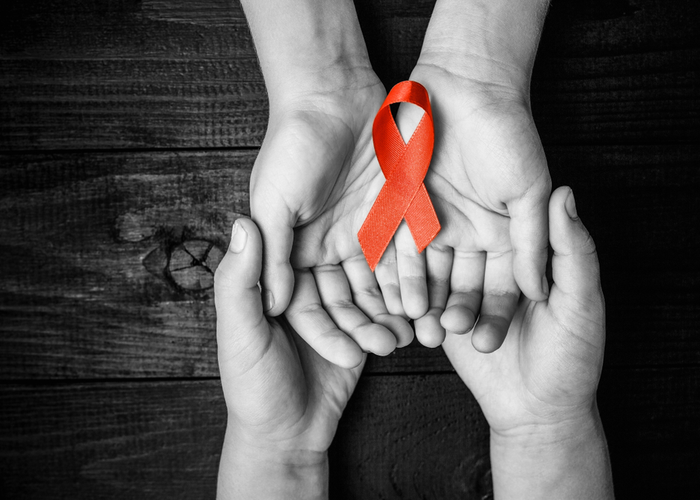
In 2020, it is estimated that 1,879 new cases of brain cancer will be diagnosed in Australia (1,113 males and 767 females). Brain cancer occurs when abnormal cells in the brain grow in an uncontrolled manner to form tumours. Brain cancers include primary brain tumours, which start in the brain and very rarely spread to other parts of the body, and secondary tumours which are caused by cancers that begin in other areas of the body.
While anyone may develop brain cancer, it appears as though people living with HIV are known to have a greater susceptibility to brain cancer. Cure Cancer researcher Dr Colm Keane is determined to learn more. We talk to him about his research and how HIV could be the answer to a breakthrough for brain lymphoma.
The Research
Based at the University of Queensland’s Diamantina Institute , Colm’s research sees him investigating an unusual brain lymphoma found in some HIV patients.
‘This is a very rare lymphoma and outcomes are poor despite amazing advances in the systemic form of the disease,’ he says. ‘In addition, therapy is very toxic to the patients with it. Some of my earlier work has indicated the immune system is very important in this disease, and is a possible new approach to treating this cancer that could improve outcomes for patients with less toxicity. It is fascinating as to why brain lymphoma appears quite different to lymphoma occurring outside of the brain.’
‘We have known for some time that control of the HIV virus with anti-retroviral drugs (drugs that hinder different steps in the HIV replication process) has led to a massive reduction in the incidence of HIV-associated brain lymphoma. This provides evidence that an effective human immune system controls the HIV virus and possibly any cancerous tumour associated with it.’
Because of this evidence, scientists will now have insights into how the human immune system can be manipulated to treat cancers in the body. ‘Some of my preliminary work has indicated that boosting the immune system is important in this disease and is a possible new, more effective and less toxic approach to treating this cancer that could improve outcomes for patients with brain cancer.’
With the help of numerous US HIV Cancer Tissue banks, Colm has also managed to successfully amass what he believes to be the largest collection of rare tumour tissue to date. ‘I hope we may be able to unlock the secrets of this disease and understand the interactions of the HIV virus with brain lymphoma,’ he says.
Despite his passion for investigating brain cancer , it hasn’t always been an easy journey for Colm. ‘It’s very difficult to get tumour biopsies to study biology due to neurosurgery being required to get biopsies, many of which are quite small. In HIV brain lymphoma, up until 10 years ago, many patients may not have even had a biopsy or therapy given the prognosis was felt to be so poor. My aim is to change this situation and offer hope for other cancer sufferers. This is so important as rare cancers like HIV Brain Lymphoma may have novel pathways that may change the limited current treatment strategies available.’
Why Funding For Cancer Research Is Vital
For Colm, his career would not be possible without the funding provided for cancer researchers by organisations like Cure Cancer. ‘The research grants are the lifeblood of cancer research and herald the next world-class breakthroughs. Even if a particular grant does not lead to a major discovery, the expertise and knowledge researchers gain along the way will influence future work in the field.’
With rare cancers like brain cancer, research is particularly important as even the simplest analysis could lead to important breakthroughs. ‘Every patient diagnosed with cancer depends on our ability to improve their outcomes so that they and their families feel that they have been given the best shot at curing their disease,’ Colm says.
‘In addition, keeping the best Australian scientists and medical staff engaged in research is very challenging when there are many other pathways available for these professionals. Continued research funding maintains our commitment to support researchers in their work to improve outcomes for all patients.’
Colm’s research grant is co-funded by Cure Cancer Australia and Cancer Australia .
You can support brain cancer researchers like Dr Colm Keane by donating today . Together we can help Cure Cancer make this the last generation die from cancer.